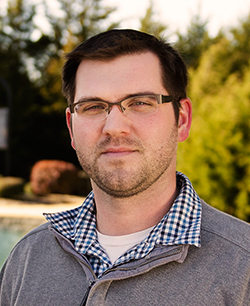Some childhood memories of holidays and family get-togethers will stay with me forever. One I still have flashbacks to is the long prayer before Thanksgiving dinner. I remember standing in a circle, holding hands with family members, smelling the food that had been cooking all day, seeing the homemade pecan pie that was just begging to get into my belly, and then someone would start praying. In my hungry opinion, it took an eternity, and I was certain I would die of starvation before “Amen.”
I often think back to those memories, especially when I am asked to pray at Thanksgiving gatherings. I have caught myself taking extra time to express gratitude to God for His kindness poured out on family and friends. But I also feel a deep conviction because often, at least in my heart, that is only time I really sit and make a conscious effort to speak my gratitude to God. This reality reveals I have an understanding of gratitude that needs to grow and mature. As I have meditated on this, I have found three things true thankfulness requires.
Thankfulness takes time
If the only time we consciously express gratitude to God for His faithfulness, goodness, and kindness is before a meal, we should feel great shame. True, genuine gratitude takes time.
I have seen this greatly in my children. My five-year-old daughter is just learning to read and write. She was given a toy by a friend and asked my wife to help her write a thank you letter. It is a common thing in the southern culture to write thank you cards, but we have not taught that to her. She just wanted to take time and express thanks to her friend. So my wife wrote the words my daughter wanted to say and she copied the words onto the letter.
It took a total of 15 minutes for her to write everything out. She will barely sit still for 15 minutes to watch a movie. For her to spend that time focusing and carefully writing brought incredible conviction to me. When was the last time I spent 15 solid minutes giving thanks to God, the Founder and Perfecter of my faith (Hebrews 12:2)?
So before our Thanksgiving meals have started cooking, let us set time aside and separate ourselves from the holiday frenzy to intentionally spend time with the One we owe our all to.
Thankfulness requires intentionality
Pulling ourselves away and putting aside all the things that need to be done can be difficult. This is especially true if the family is coming to your house, or if you have been tasked with cooking a large portion of the family meal.
But consider the story of Martha and Mary in Luke 10:38-42. Martha was busy serving the people in her home while Mary sat at the feet of Jesus. Martha got upset because she was not getting any help from Mary.
I have always found Jesus’ response interesting. He doesn’t harshly rebuke her, but gently corrects her. He opens her eyes to see where she has made a mistake, but does so with great care. “You are anxious and troubled about many things, but one thing is necessary” (Luke 10:41-42).
Jesus doesn’t tell her what she is doing is bad, or even sinful. But he tells her there are higher priorities than getting the table set on time. So it is with us.
Your house may not be the picture of perfection, the food may come to the table 15 minutes after you had planned, or you may not get to finish everything on your Pinterest Thanksgiving decoration board. But those things are secondary. We must intentionally focus on the “one thing [that] is necessary.”
Thankfulness requires a shift in perspective
When we express gratitude to God, it is good and right to thank Him for the personal and physical ways He has blessed us. For those who are healthy, God has blessed them with it. For those who have a happy family, that is a gift from God. For those who have plenty to eat, that is provided by our good Father.
But notice what all these have in common: they are focused on the things God provides. I am not saying we should not do that, we absolutely should. David praises God for forgiving sins, healing diseases, satisfying desires, and much more in Psalm 103. But we often stop with the blessings we see and feel.
Part of the beauty of Psalm 103 is that David starts with the blessings he feels and experiences, but he quickly goes beyond those to focusing on God’s character and attributes. He praises God for His righteousness, mercy, and grace; that He made Himself known to Moses (and thus to us); for His steadfast love, and on and on. If you want to know how to take your eyes off yourself and intentionally focus on the God of your salvation this Thanksgiving, let me encourage you to read and pray the totality of Psalm 103.
It doesn’t mention a turkey or pecan pie, but it will birth true thankfulness in your soul.






